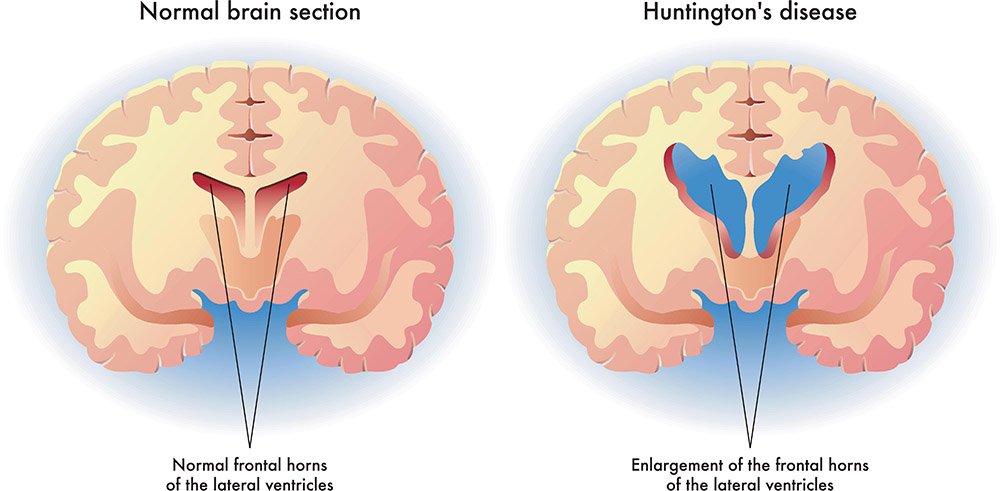
Huntington’s Disease
Subscribe to Never Miss an Important Update! Assured Discounts on New Products!
Must Join PMF IAS Telegram Channel & PMF IAS History Telegram Channel
- Context (TH): A paper published by researchers from the University of Szeged has made strides in understanding Huntington’s Disease using fruit flies.
- It is a rare, progressive genetic disorder that causes progressive breakdown of brain’s nerve cells.
- It is caused by a mutation in the HTT gene which is involved in the production of a protein called huntingtin which provides instructions for making the protein.
- Mutated genes provide faulty instructions leading to the production of abnormal huntingtin proteins and the formation of clumps.
- These clumps disrupt the normal functioning of the brain cells, which eventually leads to the death of neurons in the brain, resulting in Huntington’s disease.
- The symptoms often appear when a person is in their 30s or 40s.
- It causes uncontrolled movements, impaired coordination of balance and movement, a decline in cognitive abilities, difficulty in concentrating and memory lapses, mood swings, and personality changes.
- Treatment: No cure exists, but drugs and physiotherapy can help manage some symptoms.






![PMF IAS Environment for UPSC 2022-23 [paperback] PMF IAS [Nov 30, 2021]…](https://pmfias.b-cdn.net/wp-content/uploads/2024/04/pmfiasenvironmentforupsc2022-23paperbackpmfiasnov302021.jpg)











